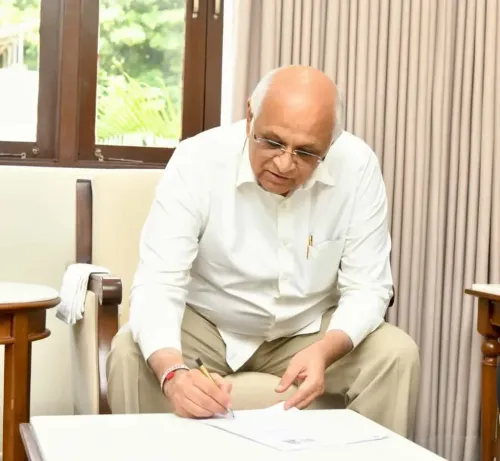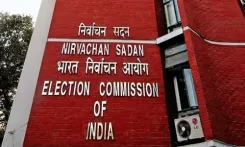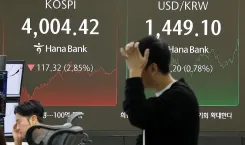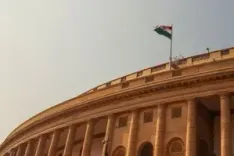Is India’s Electoral Process One of the Most Trusted in the World?
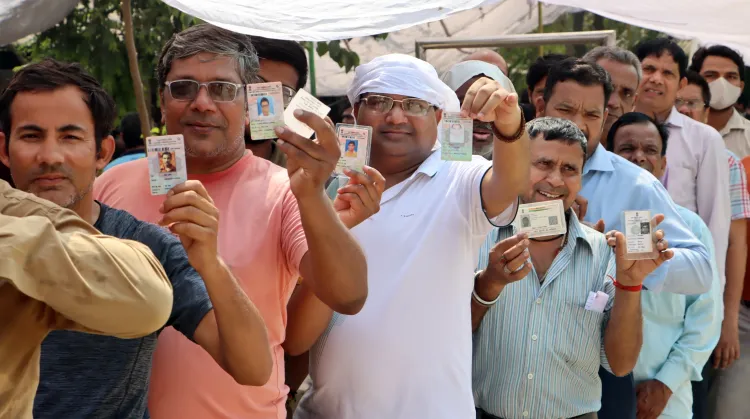
Synopsis
Key Takeaways
- India conducts the largest democratic elections globally.
- The ECI is recognized for its independence and efficiency.
- Technological advancements enhance trust in the voting process.
- Inclusivity is a hallmark of India's electoral system.
- Integrity and vigilance are crucial for a successful democracy.
Dubai, Aug 14 (NationPress) India's general elections and the electoral process, often hailed as the largest democratic endeavor globally, is recognized as one of the most trusted systems in the world, according to a report featured in a prominent English-language newspaper from the United Arab Emirates (UAE) on Thursday. The report emphasizes that this designation only partially encapsulates the vastness of the event, as nearly 980 million individuals were eligible voters during the 2024 Lok Sabha elections.
The elections were executed at an unprecedented scale, taking place at over one million polling stations, overseen by more than 15 million officials and personnel, as stated by the Khaleej Times. This national electoral process occurs every five years with remarkable precision.
At the core of this colossal operation is the Election Commission of India (ECI), an independent constitutional authority that has gained international acclaim for its autonomy and effectiveness. Established in 1950, the ECI operates under a constitutional mandate that shields it from political meddling and adheres to a strict code of conduct, as highlighted in the report.
The report further notes: “Its credibility is founded on an unwavering commitment to fairness—from overseeing campaign finances to enforcing the Model Code of Conduct that directs political conduct. The ECI’s authority is both legal and moral. Working tirelessly without bias, it has cultivated a culture of accountability that has made India’s electoral process one of the most trusted worldwide.”
India was the pioneer in implementing mass electronic voting, achieving this milestone in 1982. Former Chief Election Commissioner TS Krishnamurthy, under whose administration EVMs were widely utilized, remarked, “EVMs are a source of national pride as they are reliable, and I have complete confidence in their integrity.”
While some critics emphasize the technological vulnerabilities in elections, the Khaleej Times report asserts that India’s technological advancements have bolstered public trust. Since 2004, Electronic Voting Machines (EVMs) have replaced traditional paper ballots that were susceptible to delays and tampering. The introduction of Voter Verifiable Paper Audit Trail (VVPAT) systems allows voters to verify their choice on a printed slip before it is securely stored for potential audits.
India has also implemented biometric voter ID systems, GPS tracking for polling parties, and live streaming from sensitive polling stations to create multiple layers of protection against fraud. Observers from the Commonwealth and the United Nations have commended India’s ability to seamlessly combine scale with security, praising the electoral process for its transparency, peacefulness, inclusivity, and accessibility.
The report emphasizes that the hallmark of India’s elections is their inclusivity. The ECI guarantees complete accessibility, establishing polling stations in remote locations, including mountainous regions, desert villages, and islands in the Sundarbans. Special provisions are made for voters with disabilities, senior citizens, and those living in conflict-affected areas to ensure their participation in the electoral process.
“For nations aiming to reinforce democratic institutions, the Indian model imparts a vital lesson: integrity is not coincidental; it is a byproduct of vigilance, inclusivity, and a culture that prioritizes the voter—every voter—at the forefront,” the report concluded.




